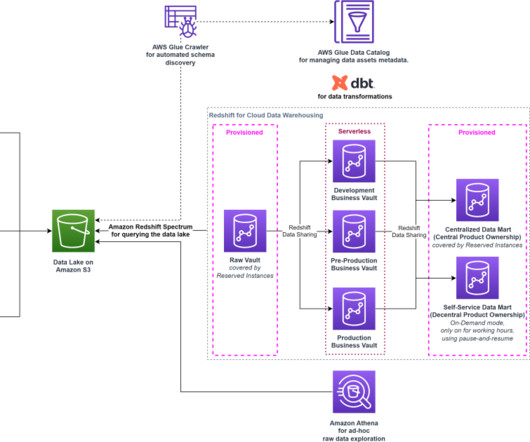How Your Finance Team Can Lead Your Enterprise Data Transformation
Alation
OCTOBER 26, 2021
Building a Data Culture Within a Finance Department. Our finance users tell us that their first exposure to the Alation Data Catalog often comes soon after the launch of organization-wide data transformation efforts. After all, finance is one of the greatest consumers of data within a business.














Let's personalize your content